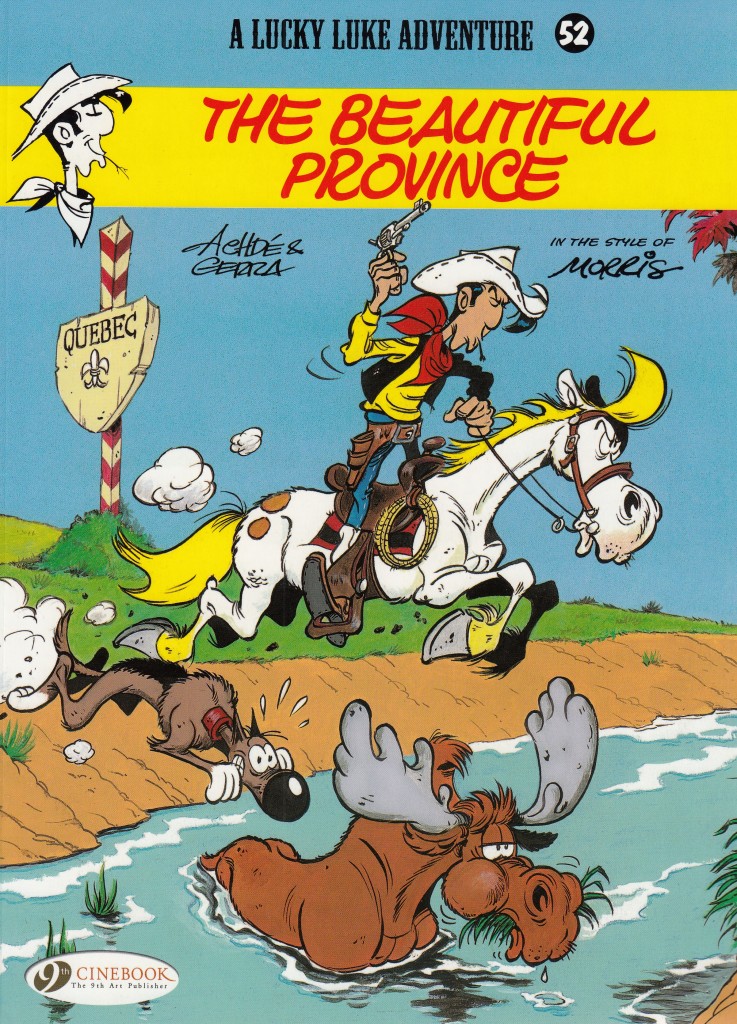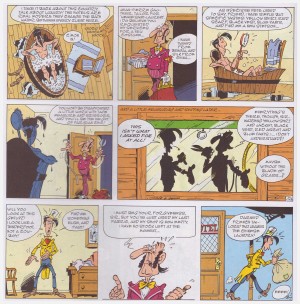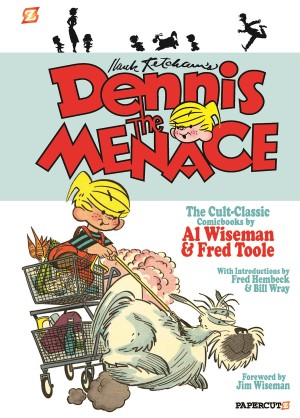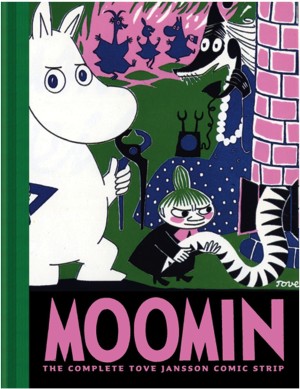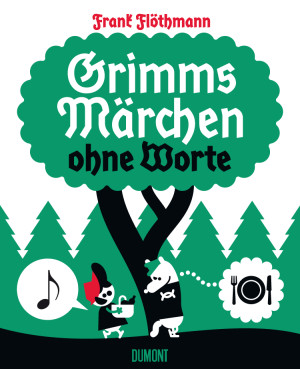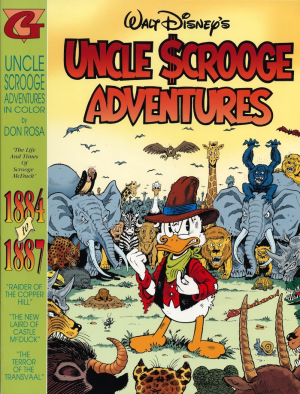Review by Frank Plowright
It’s been a decades long feature of the Asterix series that he and Obelix encounter people from other countries, often visiting them. Writer René Goscinny used this theme to satirise the habits and stereotypes of these nations. Although also Lucky Luke’s writer for many years, with two exceptions (The Daltons in the Blizzard, set in Canada, and the Mexican location of Tortillas for the Daltons) he avoided this method, perhaps considering removing Luke too far from his own setting would reduce rather than enhance the strip.
In Asterix’s day, though, there was no French-speaking province of North America, and writer Laurent Gerra, an acclaimed satirist and comedian in France, seized on this to send Luke to Quebec. The result is the first Lucky Luke book that travels really poorly beyond France, excepting, presumably, Quebec.
While the jokes about national or regional habits in Asterix are generally made once, in The Beautiful Province they’re hammered home time and again. A Quebecois dish of chips and cheese curds covered with gravy and known as poutine is ridiculed at every opportunity for some reason, and we’re overdosed with pastiches of celebrities unknown outside France. The exception is Celine Dion (here given a role similar to the bard in Asterix) while in some cases, such as philosopher Bernard-Henri Lévi, it’s dubious that any French kids are familiar with them either. Even not knowing him, the repeated joke of a plate of poutine in the face is vastly over-played.
The title is a weakly contrived pun, referring not only to Quebec’s status, but a horse pursued by Jolly Jumper. This plot occupies several pages, in effect giving us Jolly Jumper’s romantic adventures rather than Lucky Luke’s story.
Sadly, there’s worse. Achdé is a tremendously accomplished cartoonist, even if his celebrity caricatures aren’t the most recognisable. Among the other caricatures is one of a Chinese laundryman drawn with massive buck teeth and yellow skin. This was apparently to maintain consistency with the established graphic style, but surely present day sensibilities should be prioritised. When this occurred in The 20th Cavalry (1965) the ignorance of the times could mitigate the portrayal to some extent, but to see it repeated in a book published in 2004 is unforgivable. Given the current influx of migrants to Europe, it’s a real insight into what’s considered acceptable outside the UK.
The plot deficiencies overshadow the decent aspects of the book, which at first glance looks great due to Achdé’s talent. There are some good gags – Luke singing his farewell song in French, the invention of the hot dog – but too many are poor or repeated ad infinitum.
